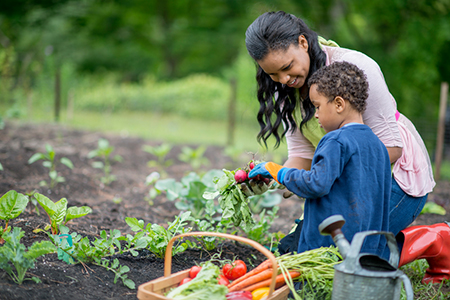(TNS)—Tomatoes with rotten ends, squash that never produced, plant leaves covered with white powder — even the most accomplished gardener might face these troubles each year.
Contra Costa Master Gardener Terry Lippert says there are lessons to be learned from these problems. Here are her tips on identifying what went wrong and fixing it for next season.
Blossom End Rot
Tomatoes and squash often develop this condition that causes the bottom end of the fruit to turn brown and mushy. It’s caused by widely fluctuating soil moisture that prevents the plant from taking in calcium.
The solution is to maintain a consistent watering schedule and add lots of organic material to the soil before planting.
Powdery Mildew
The appearance of white powder on the leaves of squash, melons and cucumbers is almost a given as the season goes on. The mildew is caused by a fungus, usually associated with wet conditions.
Plant in the sunniest areas possible and give plants space to improve air circulation.
If you catch it early in plants that are more vulnerable, you can use a fungicide on the plants, or you can use a horticulture oil to smother the spores. Don’t use both, Lippert warns, at the combination likely will kill the plant.
Fruit Fails to Develop
Some plants produce both male and female flowers, which have to get together in order for fruit to develop and mature. If you had zucchini, cucumbers and melons that produced few or no fruits, chances are poor pollination is to blame.
Growing ornamentals to attract pollinators will help. You also can hand pollinate the plants by rubbing a male flower inside the female.
If your plant only has one sex of flower, crush a leaf on the plant. That usually will encourage the plant to put out flowers of the other sex.
Bitter Cucumbers
A bitter taste in cucumbers may be caused by extreme dry or hot temperatures, overwatered soils or poor fertility.
Adjust your irrigation and fertilizer.
Peppers & Eggplants
Fruit will not set when nighttime temperatures fall below 58 degrees or when daytime temps are above 85. Low light also can inhibit fruit set. The solution? Plant in full sunlight.
Peppers and eggplants also are prone to developing leathery discolorations. These are caused by sunburn. Keep plants covered with shade cloth until the leaves on the plants are large enough to shade the fruit.
Tomato Problems
Often blossoms will form and then fall off, or fruit doesn’t set. Nighttime temperatures below 55 degrees or daytime temperatures above 90 may be to blame.
Plant a little later in the spring, or protect plants with row cover or shade cloth.
Catfacing is cracking at the blossom end of the tomato, which is caused by low temperatures during flowering and fruit set.
Not much you can do about the weather, but the good news is this is more of a visual problem. The catfacing doesn’t harm the fruit, although you may lose a little when you cut it off.
Cracking around the stem end is caused by rain or excessive irrigation. Exposure to high temperatures also can cause cracking.
Check your watering schedule.
Ripening can slow down in the late summer because you may have lost some leaves, or the temperatures and soil gets too hot.
Cover the plants with shade cloth, or just be patient.
©2016 The Mercury News (San Jose, Calif.)
Distributed by Tribune Content Agency, LLC.











